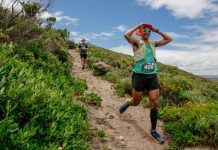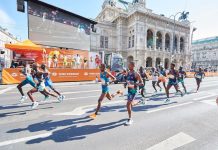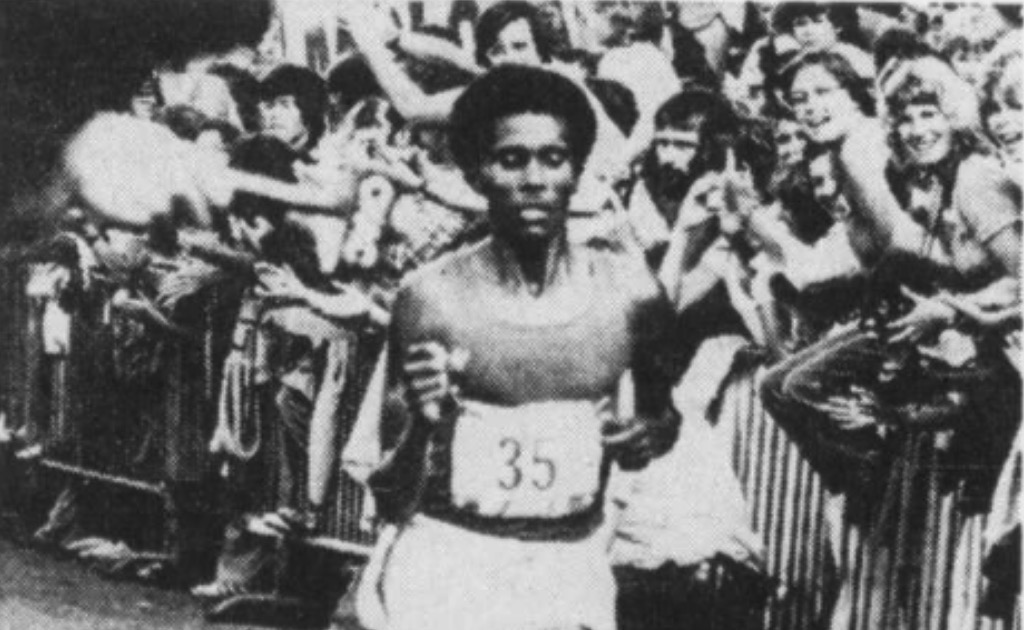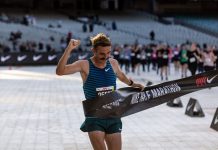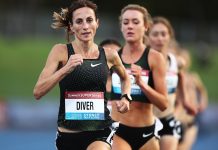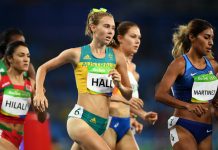Ethiopian marathoner Kebede Balcha was one of those runners you wouldn’t know was there until they passed you – usually within sight of the finish line. He did it to Dave Chettle in the World Cup marathon in Montreal in 1979 and threatened to do it to Rob de Castella at the first world championships in Helsinki in 1983 before ‘Deek’ put him away for good up the final hill.
After the pioneering breakthroughs of the legendary dual-Olympic marathon champion Abebe Bikila and Mamo Wolde, who succeeded his countryman as Olympic champion in 1968, Ethiopian marathoning went through something of a hiatus – not helped by Ethiopia’s boycott of the Montreal 1976 Olympic Games. Balcha was one of those who re-established his country’s reputation on the international marathon scene. He passed away in Toronto, Canada, on 10 July a couple of months short of his 67th birthday.
It was Balcha’s intersection with Australian athletes which piqued my interest. As well as his involvement in Montreal and Helsinki, he ran the Melbourne marathon later in his career, finishing sixth in the 1992 race behind Poland’s Slawomir Gurny.
Both against Chettle and in the world championships race against de Castella, Balcha just hung on until the final stages, hoping to employ his speed to take the victory. It worked in Montreal and may well have worked again in Helsinki were it not for the fact the hills late in the race were tailor-made for the stronger de Castella to finish him off first. In those two races, at least, Balcha remained more-or-less anonymous until he made his decisive move. Like your own shadow, you would not have known he was there until he suddenly appeared in front of you.
Both races have personal memories. I ran in Montreal and, with Ron Clarke and Mike Hurst, was one of the few Australian journalists covering the first world championships in Helsinki in 1983.
The Montreal race has since been known as the World Cup Marathon, but it was associated with the IAAF event, rather than part of it. A distinct World Cup marathon did eventuate soon enough, but 1979 Montreal was not it.
Montreal should have been the day I beat Bill Rodgers. The world’s best marathoner was not a noted performer in the heat and this was a distinctly warm day. Alas, my ‘charge’ (we’re speaking relatively here: my finish was well short of barn-storming) fell one place short of the fading favourite.
Up front, though, it was what the race announcer acclaimed “un triomphe antipodeén”, with Chettle finishing second, Chris Wardlaw third and Kiwi Kevin Ryan fourth. Unfortunately, given Balcha won, it was un triopmhe mineur, not majeure. Over most of the last 10km it had been a battle between Chettle, Balcha and another Ethiopian, Dereje Nedi. Once Nedi dropped back, Balcha tracked Chettle, going past only in the closing stages to win, 2:11:35 to 2:11:41.
Balcha had won the Marathon to Athens marathon two years earlier, but Chettle had not previously heard of his opponent.
“I have heard of Ethiopia, though,” he added.
I’m sure Deek and his coach, Pat Clohessy, had heard of both Ethiopia and Balcha before the world championships race on 14 August, 1983. Fortunately, they also knew that de Castella had won his last three marathons – a world record in the 1981 Fukuoka race, the Brisbane Commonwealth Games and the Rotterdam ‘show-down’ with Alberto Salazar – and had prepared well. There was also the little matter of those hills near the end of the race.
Balcha did join a move around 25km which saw a group of five briefly establish a 100-meter gap, but once that was closed down he resumed his low-key presence in the large pack. Britain’s Hugh Jones started the end-game moves with a surge just past 30km, trumped in turn by de Castella a couple of kilometres later. The Ethiopian went with both moves and, with five kilometres to run, the Australian led with Balcha still clinging resolutely to his heels.
Half-way up a longer hill approaching 39km de Castella had a 5-10m lead. By the top, he had broken away and was heading for a famous gold medal. He raced on serenely to the Helsinki Olympic stadium, crossing the finish line in 2:10:03, which would remain a world championships record for 20 years. Balcha, too, held his form, taking the silver medal just 24 seconds behind the winner. His was the only Ethiopian medal of the first world championships, of the first two championships, in fact. Ethiopia has added another 75 since.
Balcha ran only one other global championships, the Moscow 1980 Olympic marathon, in which he was a DNF.
Montreal became his favourite race. He had added a second win in 1981 and then, just six weeks after the world championships, Balcha won it again, coincidentally equalling de Castella’s gold medal performance. He won for the fourth time in 1985.
Kebede Balcha made his mark in Canada and evidently Canada likewise made an impression on Balcha. In 1999, he was one of a group of eight Ethiopian sports people who applied for refugee status. The 1980 Olympic 5000-10,000 champion Miruts Yifter also settled in Canada, passing away in December, 2016.
Family and friends will mourn Kebede Balcha’s passing. Australians, too, will remember him fondly for his involvement in our only global marathon gold medal.





